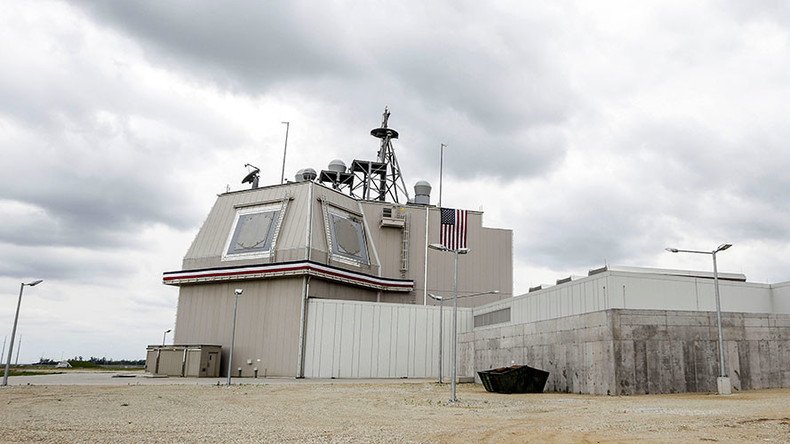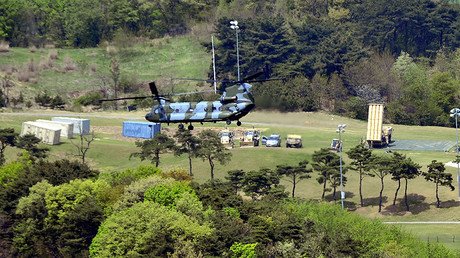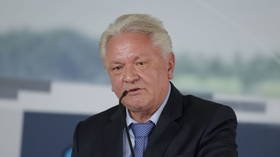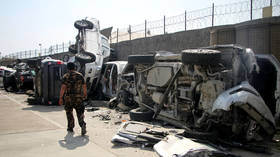Japan may host Tomahawk-compatible launchers to counter N. Korea missile threat – media

Japan is reportedly considering adopting the land-based version of the Aegis missile defense system over THAAD, citing the N. Korean missile threat. The system could potentially be used with Tomahawk missiles, making it a threat to Russia and China.
Tokyo has ordered a feasibility study into adopting the Aegis Ashore system, government sources told the Japan Times, as an alternative to the Terminal High Altitude Area Defense (THAAD) system, which South Korea chose to host despite criticism from China.
The newspaper says Japan would need six THAAD units to defend its entire territory, at a cost of $6.6 billion. Aegis Ashore costs around $700 million apiece, and only two of them would be required to protect the same territory, the report said.
Reuters cited the estimated cost of Aegis Ashore at $618 million to $706 million, and says the Japanese government favors it over THAAD. Neither report named its sources, saying they were not authorized to discuss the potential deal.
In March, Pyongyang conducted four ballistic missile tests, with three of the projectiles landing in the waters of Japan’s “exclusive economic zone.” Following the launch, Tokyo lodged a protest.
Japanese Prime Minister Shinzo Abe claimed that the “latest launches of ballistic missiles clearly demonstrate evidence of a new threat from North Korea.” Abe also stressed that the test violated UN Security Council resolutions on Pyongyang, which prohibited the tests. US officials at the time could not, however, confirm that ballistic missiles were indeed tested.
The Japanese Navy has Aegis systems installed on its missile destroyers, but placing the launchers on dry land is expected to lower the need for naval patrols and thus the operational cost of the national antimissile system, which also includes ground-based Patriot missiles.
The US is already deploying Aegis Ashore sites in Eastern Europe, a move that Russia considers a significant threat to its national security. The launch systems used by Aegis are the same that are used to fire Tomahawk cruise missiles.
Russian military strategists believe that the site already operational in Romania could be easily and secretly converted into a Tomahawk battery with Russian territory within its range.
The US rejects Russia’s concerns, saying they are unfounded. Moscow sees the deployment as a potential violation of the Cold War-era INF treaty, under which the US and Russia agreed not to have land-based intermediate-range missiles in their arsenals.
Aegis Ashore batteries in Japan, if used to launch Tomahawk cruise missiles, would have most of China’s developed coast area as well as Russia’s Sakhalin and Primorsky Kray regions within range.
South Korea’s decision to host the THAAD system earlier provoked rebuke from Beijing, which sees it as a security threat.
China apparently retaliated for the decision with undeclared economic sanctions against South Korea, reportedly including the restriction of popular tourist group trips to South Korea, advising Chinese companies to not buy from South Korea, and threating market access to Lotte, the South Korean retail group that provided the land for the THAAD system.
South Korean President-elect Moon Jae-in said he may reconsider the anti-missile deal after winning the office in a snap election this week. The liberal politician takes over from disgraced conservative leader Park Geun-hye, who was impeached in March over corruption charges.














